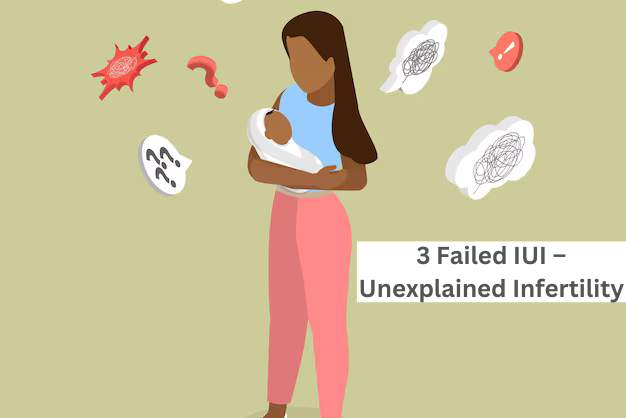3 Failed IUI – Unexplained Infertility
Infertility is a complex issue that can affect anyone. In some cases, the cause of infertility is unexplained. This means that even after extensive testing, doctors are unable to pinpoint the exact reason why a person is struggling to conceive.
If you have experienced multiple failed IUI attempts and your doctor has diagnosed you with unexplained infertility, you may be feeling frustrated, confused, and overwhelmed. It's important to know that you are not alone. Many people go through the same thing.
What is IUI?
Intrauterine insemination (IUI) is a fertility treatment that involves placing sperm directly into the uterus during ovulation. It is often used when there is a problem with the sperm or when the couple has difficulty conceiving through intercourse.
What is unexplained infertility?
Unexplained infertility is a diagnosis given when there is no apparent medical reason for a person's infertility. This can be frustrating and confusing, as it can make it difficult to know how to move forward.
What are the causes of unexplained infertility?
The exact causes of unexplained infertility are unknown. However, there are several factors that may contribute to this condition, including:
Age: The chances of conceiving naturally decrease as a woman gets older.
Endometriosis: This condition is characterized by the growth of endometrial tissue outside of the uterus. It can cause infertility by blocking the fallopian tubes or damaging the ovaries.
Uterine fibroids: These non-cancerous growths can interfere with implantation.
Polycystic ovary syndrome (PCOS): This condition is characterized by the presence of multiple small cysts on the ovaries. It can cause infertility by disrupting ovulation.
Genetics: In some cases, unexplained infertility may be caused by genetic factors.
What are the treatment options for unexplained infertility?
There is no guaranteed treatment for unexplained infertility. However, there are several options that may help you to conceive, including:
IUI: Even if you have experienced multiple failed IUI attempts, it may be worth trying again. Sometimes, the success rate of IUI can improve with repeated attempts.
In vitro fertilization (IVF): This is a more invasive fertility treatment that involves fertilizing eggs with sperm in a laboratory and then transferring the embryos into the uterus.
Medication: In some cases, medication can help to improve ovulation or the quality of the uterine lining.
Surgery: If you have endometriosis or uterine fibroids, surgery may help to improve your fertility.
What can you do to cope with unexplained infertility?
Coping with unexplained infertility can be challenging. However, there are several things that you can do to help yourself cope:
Talk to your partner and loved ones: Sharing your feelings with others can help you to feel less alone.
Join a support group: Talking to other people who are going through the same thing can be very helpful.
See a therapist: A therapist can help you to manage your stress and anxiety.
Take care of yourself: Make sure to eat healthy, get enough sleep, and exercise regularly.
Conclusion
If you have experienced multiple failed IUI attempts and your doctor has diagnosed you with unexplained infertility, it's important to know that you are not alone. There are several treatment options available, and there are things that you can do to cope with this challenging situation.
Frequently Asked Questions (FAQs)
1. What does unexplained infertility mean?
Unexplained infertility is a diagnosis given when standard fertility tests for both partners come back normal, yet conception does not occur. This situation can be frustrating, as there are no clear reasons for the difficulties in achieving pregnancy.
2. What are the chances of success after three failed IUI cycles?
The success rates of IUI generally range from 10-20% per cycle. After three failed cycles, it may be advisable to explore other treatment options, such as IVF, which has higher success rates, especially for those with unexplained infertility.
3. Why might IUI fail even with normal test results?
IUI can fail for several reasons, including:
- Subtle egg quality issues that standard tests do not detect.
- Undetected sperm abnormalities, such as DNA fragmentation.
- Timing issues with ovulation or egg-sperm interaction.
4. What are my options after three failed IUI attempts?
After three unsuccessful IUI cycles, consider the following options:
- Taking a break for emotional and physical well-being.
- Reevaluating your diagnosis with advanced testing for hidden fertility issues.
- Moving to IVF, which offers higher success rates and allows for greater control over the fertilization process.
- Exploring lifestyle changes that may positively affect fertility.
5. How does IVF differ from IUI?
IVF involves fertilizing eggs with sperm outside the body and transferring the resulting embryos into the uterus. Unlike IUI, where sperm is placed directly in the uterus, IVF provides more opportunities to assess and select the best-quality embryos for transfer.

 Oct-23-2024
Oct-23-2024